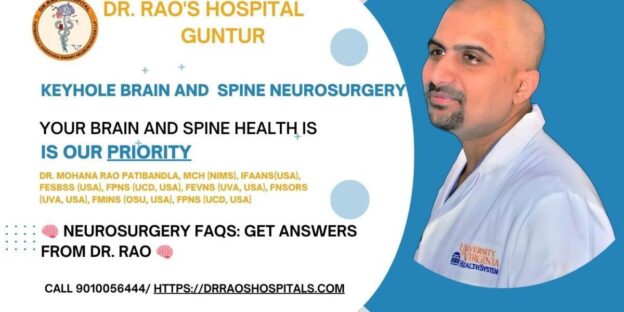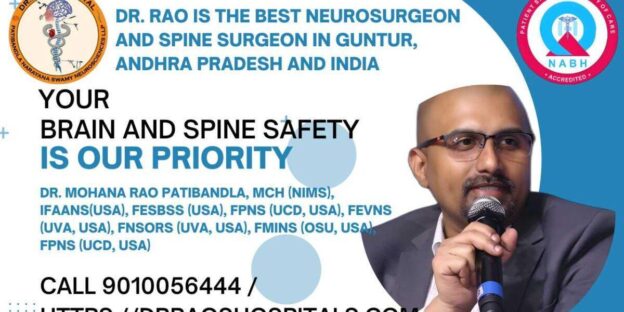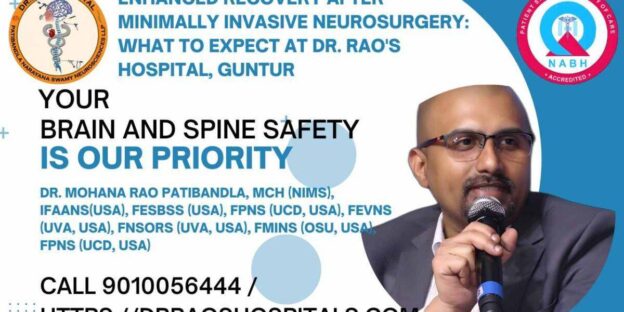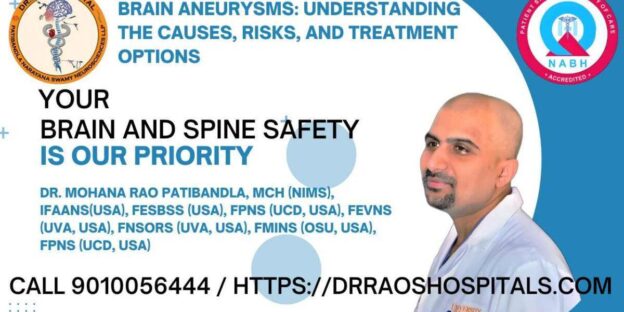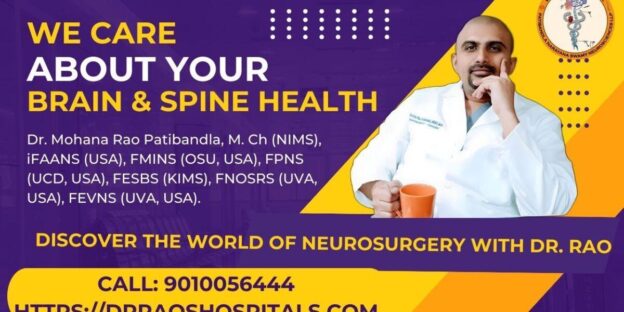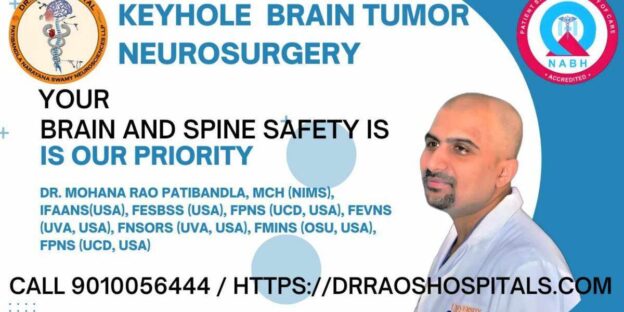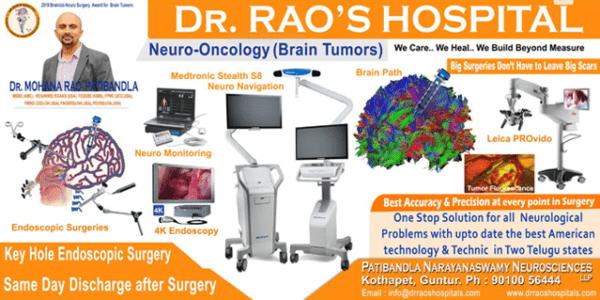Dr. Rao’s Hospital: The best Neurology, Spine Surgery, and Neurosurgical Care in Guntur
Welcome to Dr. Rao’s Hospital: Your Premier Destination for Neurology, Spine Surgery, and Comprehensive Neurosurgical Care in Guntur!
Your Trusted Neurology Hub in Guntur
Are you seeking the best neurology hospital in Guntur? Look no further! At Dr. Rao’s Hospital, we take immense pride in being your one-stop solution for all neurology-related concerns. Our esteemed institution is renowned for its exceptional medical care and a team of dedicated specialists who are committed to enhancing your neurological well-being.
Leading Neurology Experts at Your Service
Best Neurologist Doctors in Guntur:
As the top choice for neurology care, Dr. Rao’s Hospital is home to the best neurologist doctors in Guntur. Our experts bring unmatched proficiency and unwavering dedication to the table, ensuring accurate diagnoses and personalized treatment plans tailored to your needs.
Top Neurologist in Guntur:
Ranked at the forefront, our hospital proudly features the top neurologist in Guntur. With years of experience and a patient-centric approach, our neurologists offer comprehensive care for a wide spectrum of neurological disorders.
Neuro Physician in Guntur:
Your quest for a proficient neuro physician in Guntur ends here. Our neurologists are known for their expertise in diagnosing and treating various neurological conditions, ensuring that you receive the highest level of medical attention.
Brain Specialist in Guntur:
When it comes to neurology care, Dr. Rao’s Hospital stands out as a trusted brain specialist in Guntur. With the aid of cutting-edge technologies and unmatched expertise, we excel at diagnosing and treating a variety of neurological disorders.
Elevating Spine Surgery Standards
Best Neurosurgeon in South India:
Our hospital boasts the best neurosurgeon in South India. With a focus on surgical excellence and patient-centric care, our neurosurgeons have garnered a reputation for delivering successful outcomes in complex cases. According to mid-day
Spine Specialist Hospital:
Are you in search of the finest spine care hospital in Guntur? Look no further than Dr. Rao’s Hospital. Our comprehensive spine care services, under the direction of skilled spine surgeons, guarantee the best results for all spinal concerns.
Neurosurgeon Spine Surgeon:
Our team features a dedicated neurosurgeon spine surgeon who specializes in intricate spine surgeries. From spinal deformities to complex injuries, our experts provide top-tier care using cutting-edge techniques. In a recent deccanherald
Best Hospital for Back Problems:
As the best hospital for back problems, Dr. Rao’s Hospital is committed to providing comprehensive care for all your spinal concerns. Our multidisciplinary approach ensures that you receive the highest standard of treatment.
Your Neurological Well-being is our priority.
Neuro Spinal Hospital Location:
Conveniently located, Dr. Rao’s Hospital stands as a leading neuro spinal hospital. Our strategic placement ensures easy accessibility, making it effortless for patients to access specialized neurological and spinal care.
Neurology Appointment Near Me:
Need a neurology appointment near you? Look no further. Our hospital offers timely appointments with experienced neurologists, ensuring you receive the prompt attention you deserve.
Brain Tumor Best Treatment in India:
Seeking the best brain tumor treatment in India? You’re in capable hands at Dr. Rao’s Hospital. Our expertise in brain tumor care ensures the finest treatment outcomes.
Contact Us Today for Unrivaled Neurology Care
At Dr. Rao’s Hospital, we believe in transforming lives through comprehensive neurology care. Our state-of-the-art facility, coupled with the expertise of the best neurologist and neurosurgeon in Guntur, ensures you receive world-class treatment for your neurological concerns.
Ready to take charge of your neurological health? Schedule your appointment today and experience the profound impact of expertise and compassion on your journey to improved well-being.
Visit our website for more details: drraoshospitals or call 9010056444. Your neurological health matters, and we’re here to guide you every step of the way!

